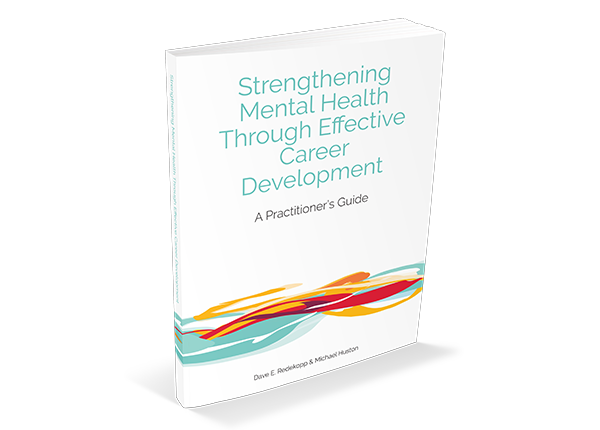
Canadians experiencing high degree of career regret, new national CERIC survey finds
January 27, 2020
Strengthening Mental Health Through Effective Career Development: Guide launches today
January 27, 2020Career professionals report their clients felt pressured into choosing careers they didn’t want to pursue
Toronto, Jan. 27, 2020 – More than 7 in 10 Canadians who see a career counsellor or coach say they wish they had made different career decisions earlier in their lives, according to a national survey of 1,300+ career service professionals undertaken by CERIC. The results are being released at Cannexus, Canada’s largest career development conference, which will be held Jan. 27-29 at the Shaw Centre in Ottawa.
The career professionals surveyed report that they often hear from the students and adults they advise that they would go back and change their career choices if they could. They report that among their clients:
- 71.7% say “I wish I had understood myself better and chosen a career that is aligned with my values”
- 66.5% say “I wish I hadn’t been pressured into pursuing a career I didn’t want to pursue”
- 61% say “I wish I hadn’t played it safe and let fear prevent me from taking a different career direction”
- 58.8% say “I wish I hadn’t narrowed my options so soon and been able to explore other careers”
The findings point to the need for Canadians to have better career development skills, starting at a young age and continuing throughout their lives, says John Horn, chair of the board of CERIC, a national charity focused on research and education in career development. These skills include the ability to identify what to learn for the jobs of the future and how to develop the emotional resilience to navigate change – and not be limited by other people’s expectations or our own doubts.
“We all want to have work that makes us spring out of bed in the morning – that feeds our souls and allows us to create the life we want for ourselves and our families,” says Horn.
Canadians want to balance their search for a career they are passionate about with economic realities, say career counsellors surveyed. Their clients are evenly divided, with 45.3% anxious about making the “right” career decision and 49.4% concerned about their ability to find decent-paying work. Of note, only 3.2% of career professionals report that their clients are fearful of AI/automation and what that means for their job prospects, which differs from would be expected given the level of public discussion around technology displacing workers.
Career professionals also identified a number of persistent myths about career development that are constraining people’s ability to find rewarding careers – foremost among them that the vast majority think career guidance ends in Grade 12:
- 85.2% agree that most Canadians don’t know that career guidance is available beyond high school
- 82.1% agree that most Canadians think that careers are linear, moving from post-secondary to a job in your field
- 79.3% agree that most Canadians believe that choosing a career means deciding what to do for the rest of your life
- 51.2% agree that most Canadians feel that if they only follow their passion, they will land their dream job
Canadians at every age should know that there are professionals they can turn to for career support, says Horn. While teachers, parents and managers all have a role to play, professional career guidance is available, often for free in post-secondary career centres and community agencies, as well as from fee-based, private-sector career coaches.
“Canadians need to take charge of their career development to make the most of their talent and potential – there are professionals who can help,” Horn says. “Working with a career professional can help people identify personal strengths, clarify career goals and build the strategies to pursue a satisfying life.”
To arrange an interview, obtain a media pass for the Cannexus conference or for more information, please contact:
Sharon Ferriss
Senior Director, Marketing & Communications, CERIC
sharon@ceric.ca | 647.466.0564
About CERIC
CERIC is a charitable organization that advances education and research in career counselling and career development, in order to increase the economic and social well-being of Canadians. It funds projects to develop innovative resources that build the knowledge and skills of diverse career professionals; annually hosts Cannexus, Canada’s largest bilingual career development conference; and publishes the country’s only peer-reviewed academic journal, Canadian Journal of Career Development. www.ceric.ca
